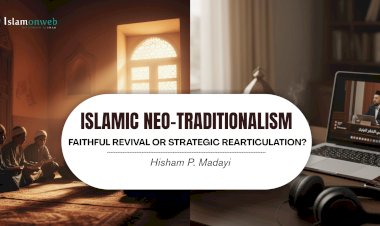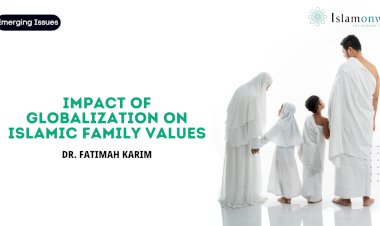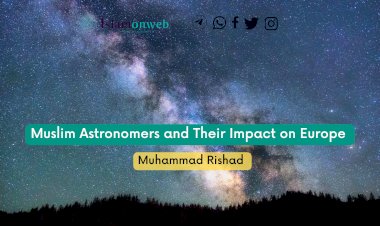Islam and Secularism; Conflict or Conciliation? (Part Two)
Syed Muhammed Naqib Al-Attas
As a leading thinker within the rejectionist school of thought, Syed Muhammed Naqib Al-Attas, prominent Malaysian Muslim Philosopher, has offered a unique critic of secularism as an ungodly ideology and a historical process that grew from the fusion of different worldviews-Greco-Roman, Judaic and Western Christian. Similar to his contemporaries- including the likes of Allama Muhammed Iqbal (1877-1938), Malek Bennabi (1905-73) and Ali Shariati (1933-77), he was strongly influenced by an attitude of anti-westernism and disillusionment in the project of Secularization that was prevalent in Muslim world. It was the time that Muslims were trying to regain their position in a decolonizing world, and Muslim intellectuals were trying to introduce new alternatives to colonial frameworks of thought, Al-Attas introduced his idea of Islamization of Knowledge, which later made strong influences in policy makings of Malaysia, his native country.
Within his seminal work, Islam and Secularism, Al-Attas starts his criticism of Secularism by challenging the prevalent notion in the academia, that the roots of the ideology were planted during the Enlightenment. Further, he goes on to argue that the origin of secularism was the fusion of Greco-Roman and Judaic traditions with Western Christianity. Hence, it was the gradual corruption of the faith in the Western context that fostered the separation of the state from church, not Christianity: “It is this ‘fusion’ of mutually conflicting elements of the Hellenic and Hebrew worldviews which have deliberately been incorporated into Christianity that modern Christian theologians and intellectuals recognize as problematic, in that the former views existence as basically spatial and the latter as basically temporal in such wise that the arising confusion of worldviews becomes of the root of their epistemological and hence also theological problems.” The project of Christian theologians to profess a new secularized version of Christianity and to supplant it within Christianity to meet the challenge of secularization was savaged by Al-Attas as an “immanent apostasy.”
After making a detailed sketch of contemporary Western Christian context, Al-Attas explores Secular and Secularization, two terms related with secularism. For him “the concept Secular refers to the condition of the world at this particular time or period or age.” This spatio-temporal connotation inherent within the term is, he criticizes, the product fusion of Hellenic and Judaic tradition in Western Christianity. To describe the term Secularization, he quotes various definitions of the term in the academia, all which move towards the notion that it is a historical process of the evolution of man from the religious controls and closed metaphysical world views to a liberated society. The term also possesses, for him, within in it three integral components- the disenchantment of nature, the desacralization of politics, and the deconsecration of values. He distinguishes between secularization and secularism by arguing that, while the former implies a continuing and open-ended process in which values are ever-changing according to changes in history, the latter, like religion, possesses certain values which are historically affiliated to the West. Although secularism moves towards desacralizing politics and disenchanting nature, on the contrary to secularization, it never deconsecrated values “since it sets up its own system of values intending it to be regarded as absolute and final.” The notions that western culture and civilization are the most advanced, and western man has the burden of civilizing ‘others’ to help to reach them to the most evolved form of civilization, were rejected by Al-Attas. He argued that secularization cannot be accepted as true when it is applied to the religion of Islam and the Muslims.
Coming to Islam, Al-Attas insists, it totally rejects any applications of the concepts secular, secularization and secularism as they do not belong to it in every respect. On contrary to the secular paradigm, Islam possesses an alternative epistemology which, rather than being based on mere rational speculation and interpretation of the facts of human life, considers Metaphysics as a knowledge obtained by the practical devotion of the God. Over the course of his criticism of secularism, a tendency towards blaming Westernized Christianity while conforming its older version with Islam is immanent. The western conception of religion itself is problematic, according to Al-Attas, in understanding Islam. For West, religion is part of tradition or culture, and undergoes the changes and developments just as man undergoes the process of evolution. Al-Attas considers Islam as a revealed religion which is complete and perfect in its adequacy for mankind from the very beginning, evidently the Holy Quran states that “this day I have perfected your religion for you and completed My favour to you.”
For Al-Attas three essential components of secularization completely contrast Islam. As Islam possesses certain values, it never agrees with the idea of deconsecration of values, because it understands values as relative and changing according to changes in society. Although Islam desacralizes politics, it does not go to the extent to give up all authority to laymen, rather it considers Allah, its God, and Prophet Muhammed as the supreme authority, with which state and government needed to conform. Al-Attas blames the fusion of Christianity with Hellenistic viewpoints as the reason for disenchantment of nature. To state this argument, he explores in detail the development of western philosophy from Ancient Greek to the period of Immanuel Kant. Islam, in contrast to the secular paradigm, views nature as a means to reach God, which has symbolic connection with God. Man, according to the Holy Quran is God’s vicegerent (Khalifah) of the kingdom of Nature. Although, it banishes animistic superstitions from nature where indeed they do not belong. Thus, For Al-Attas, Secularism is a construct of fusion of Hellenistic and Judaic traditions with Christianity, and not has the potential of universal applicability, especially when it comes to Islam.
Charles Taylor
The Canadian Catholic academic Charles Taylor has long been an influential figure in the academic study of Philosophy and politics, and a notable presence in Canadian public life. Although he admits the arguments of the likes of Syed Muhammed Naqib Al-Attas, that the secularism is a creation of Christendom, as valid, he contrasts with them in the claim that Secularism’s historical affiliation limits the application of its formulae to post-Christian societies. It was the wars of religions, and the search for a way out of them was, he opines, the original point of Secularism. In order to construct a space which all these conflicting sects can share and independent of all confessional allegiances, the West developed a common ground strategy. Taylor describes it as “the aim was to establish a certain ethic of peaceful coexistence and political order, a set of grounds for obedience, which while still theistic, even Christian, was based on those doctrines which were common to all Christian sects, or even to all theists.” As this adoption of common ground strategy to meet new threats was favoured towards setting out certain common beliefs, beyond the bounds of Christianity, it later ended in Deism. Although the common ground strategy tries to accommodate peoples of different viewpoints, the space they “originally defined as common” is basically in favor of one party among others. Thus, although the common ground strategy arguably promises a space where all will be treated equally, it has certain limits and a wide range of diversifications that are present in current society.
Addressing this crisis within the common ground strategy, they developed an independent political ethic aiming the common space to be more inclusive of rich varieties of beliefs and non-beliefs. Pushed further, this strategy was intended towards the extrusion of religion from public domains. “The state upholds no religion, pursues no religious goals, and religiously-defined goods have no place in the catalog of ends it promotes.” But the very crisis which haunted the common ground strategy also appears here as this independent ethic will favour the interests of those who set it.
Thus, Taylor develops his criticism that the best way to describe the process of secularism will be the ‘overlapping consensus,’ developed by prominent American political philosopher John Rawls. The issue of its Christian origins and inapplicability to Muslim regimes was thus arguably solved by him as it can be readapted to ever-new contexts, but not in its original form. It is also evident from the above example that the idea becomes more and more complicated as society diversifies. The overlapping consensus approach, while builds consensus on the ethic, not by forcing upon the polity to be part of it, respects the diversity of broader and deeper understanding of the good that each and everyone have. Taylor believes that this model of secular is not only intellectually appealing, but also modern nation state cannot do without. Like Anglo-Irish Political scientist Benedict Anderson, he considers modern nation-states as ‘imagined communities.’ Imagined communities are distinguished by two features of the horizontal, direct-access character of modern society and their grounding in secular, homogeneous time. By taking this approach overlapping consensus as basic of secularism, Taylor retries to establish the universal potential of secularism, which was later criticized by prominent anthropologist of Islam, Talal Asad.

Talal Asad
In contrast to former critical engagements with Secularism, Talal Asad, whose seminal contributions to this field of study in a number of books and essays have had paramount impacts, considers the difficulty with secularism as a political doctrine is not that it is the construction of the post-reformative historical condition in West, but it's close connections “with the rise of a system of capitalist nation-states, mutually suspicious and grossly unequal in power and prosperity, each possessing a collective personality that is differently mediated and therefore differently guaranteed and threatened.” Modern nation-states, which were characterized by Charles Taylor as direct access society and as grounding in homogeneity, are, for Asad, featured by “the statecraft that uses ‘self-discipline’ and ‘participation’, ‘law’ and ‘economy’ as elements of political strategy.” Conditions of minorities, presence of media who work in favor of party bosses and opinion polls which depict the favours of public to government, along with several other issues that are prevalent in modern nation states challenge the feature of direct access society. Similarly, the time conception which put forth by secularism ignores the temporalities by which individuals of heterogeneous society lived.
Asad examines the idea of an overlapping consensus of John Rawls, which was presented by Charles Taylor as a central element of secularism, and which allows people to have different reasons for subscribing to the independent, secular ethic. But, when there are quarrels about what should be considered as a core principle, the threat of legal action and violence that implies resolving those conflicts, make the idea of overlapping consensus contradictory. Asad becomes more sceptical about the doctrine by stating that “when the state attempts to forcibly establish and defend ‘core political principles,’ when its courts impose a particular distinction between core principles and background justification (for the law always through violence), this may add to cumulative disaffection. Can secularism then guarantee the peace it allegedly ensured in Euro-America’s early history- by shifting the violence of national and colonial wars?”
According to Asad, secularism is more than a mere separation of religion from secular institutions of government, for it presupposes new concepts of religion, ethics, and politics; new imperatives associated with them. In contrast to pre-modern mediations of non-transcended local identities, secularism is redefining, transcending, and differentiating the political medium of the self, articulated through class, gender, and religion. By giving a detailed scrutinization of countries that have secular constitutions, Asad concludes that a secular state rather than guaranteeing toleration, puts into play structures of ambition and fear. Secularism, which promises a space where all have direct access and all are considered equal without any medications, is evidently practicing violence on its followers by making it a legalized act. The law, since its primary intention is to regulate violence, not eliminate completely, is always making ‘others’, who are subjects of legalized violence.
What makes Asad’s criticism of secularism more important is his excavation of the epistemic category of secular, which was less explored by scholars who preceded him within this field of inquiry. For Asad, religion and secular are, rather than being fixed categories, two mutually defining terms, realms of which were constituted and constructed in the influence of changes in paradigms. The secular, in Asad’s writings, is “a variety of concepts, practices and sensibilities; which over time have come together to form the secular”. “It is neither continuous with the religious that supposedly preceded it, …. nor a simple break from it; … it is a concept that brings together certain behaviours, knowledge and sensibilities in modern life.” For making a detailed understanding of the idea of secular, and how they worked within the public conscience of each historical society, Asad explores issues, such myth, agency, pain, cruelty and human rights, in which the conception of secular was reflected. Thus, rather than assuming secular as historically what came after religion, as many who conceptualized it assumes, Asad understands it as what is historically present within every society.
From the above discussion on universal inapplicability of secularism, it can be concluded that the separation between mundane and spiritual is not necessarily what was introduced by the West. But, it was them, who tried to impose violently their experience of separation between secular and sacred on eastern societies, thus making them bound by nation states and democratic liberal values. West’s self-imposed role as the saviour of mankind and ‘pre-modern’ eastern societies filled their land with tensions and uncertainties, which current decolonial debates try to communicate. Within the academia on Islam, an area of Islamic Secular, the realm which is beyond Shareea, but is Islamic, still remains unexplored
Endnotes:
[1] Al-Attas, Islam and Secularism, P. 16
[1] “Indeed, many Christian theologians and intellectuals forming the avant-garde of the Church are in fact deeply involved in ‘immanent apostasy,’ for while firmly resolving to remain Christian at all costs they openly profess and advocate a secularized version of it, thus ushering into the Christian fold a new emergent Christianity alien to the traditional version to gradually change and supplant it from within.”, Al-Attas, Islam and Secularism, P.4.
[1] Al-Attas, Islam and Secularism, P.16
[1] “It is the freeing of nature from its religious overtones; and this involves the dispelling of animistic spirits and gods and magic form the natural world, separating it from god and distinguishing man from it, so that man may no longer regard nature as a divine entity, which thus allows him to act freely upon nature, to make use of it according to his needs and plans, and hence create historical change and development.”, Al-Attas, Islam and Secularism, P. 18
[1] “It is the abolition of sacral legitimation of political power and authority, which is the prerequisite of political change and hence also social change allowing for the emergence of the historical process.” Al-Attas, Islam and Secularism, P.18
[1] “it is the rendering transient and relative all cultural creations and every value system which for them includes religion and worldviews having ultimate and final significance, so that in this way history, the future, is open to change, and man is free to create the change and immerse himself in the evolutionary process.” Al-Attas, Islam and Secularism, P.18
[1] Al-Attas, Islam and Secularism, P. 18
[1] Ibid, P.22-24
[1] Quran; Surah Maeda, Verse: 3
[1] Al-Attas, Islam and Secularism, P.22-31
[1] Ibid. P. 33-44
[1] Taylor, Charles; Secularism and its Critics, P. 32
[1] Ibid, P. 33
[1] Ibid. P. 33-36
[1] Taylor further goes to clarify his argument; “The dissensus takes this form: What the unbelieving ‘secularist’ sees as a necessary policing of the boundary of a common independent public sphere, will often be perceived by the religious as a gratuitous extrusion of religion in the name of a rival metaphysical belief. What to one side is a more strict and consistent application of the principles of neutrality is seen by the other side as partisanship. What this other side sees as legitimate public expressions of religious belonging will often be castigated by the first as the exaltation of some peoples’ beliefs over others.” Ibid, P. 36
[1] Ibid; P.37
[1] Asad, Talal; Formation of the secular, P. 2
[1] Ibid. P.7
[1] Ibid. P.3
[1] Asad, Talal; Formations of the secular. P. 6-7
[1] Ibid. P.1-5
[1] Ibid. P.1-5
[1] Asad, Talal; Formation of the secular, P. 16-25
[1] Influenced by the contemporary salience of religious movements around the globe, some scholars argued for a post-secular society. The term “post-secular” has been used in sociology, political theory, religious studies, art studies, literary studies, education and other fields. Jürgen Habermas is widely credited for popularizing the term, to refer to current times in which the idea of modernity is perceived as failing and, at times, morally unsuccessful, so that, rather than a stratification or separation, a new peaceful dialogue and tolerant coexistence between the spheres of faith and reason must be sought in order to learn mutually. In this sense, Habermas insists that both religious people and secularist people should not exclude each other, but to learn from one another and coexist tolerantly.
[1] For more details, read Sherman A. Jackson’s ‘The Islamic Secular’, Vol. 34 No. 2 (2017): American Journal of Islamic Social Sciences
About author:
Muhyudheen Shakir P is a graduate of Islamic Studies from Darul Huda Islamic University. Currently, he works as Sub Editor in Book Plus Publishers
Disclaimer
The views expressed in this article are the author’s own and do not necessarily mirror Islamonweb’s editorial stance.
























Leave A Comment